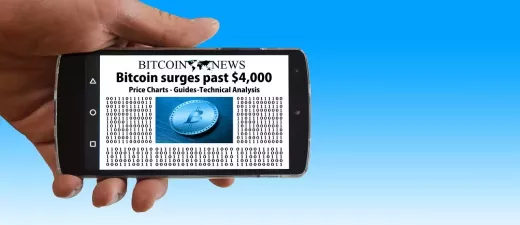What is the currency market?
The currency market is a global network of banks, brokers, and financial institutions that facilitate the trading of currencies. It is the largest and most liquid financial market in the world, with daily trading volumes averaging over $5 trillion. The currency market is a decentralized market that trades currencies and acts as an intermediary between buyers and sellers of different currencies. The global currency market is often referred to as “Foreign Exchange” or “Forex”. Within the Forex market, there are two main types of currency trading markets, the spot market, and the forward market. The spot market is a market where currencies are bought and sold for immediate delivery. The forward market is a market for buying and selling currencies for delivery at some time in the future. Both markets play an important role in international trade and the global economy.
Types of currency markets
The most important types of currency markets are the spot market and the forward market. The spot market is a market where currencies are bought and sold for immediate delivery. The forward market is a market for buying and selling currencies for delivery at some time in the future.
Spot Market - The spot market is a market where currencies are bought and sold for immediate delivery. In the spot market, traders buy and sell currencies by agreeing to exchange the currencies, or the amount of the currencies, at a specified rate on a specified date. The spot market is also referred to as the “cash market” or the “interbank market”.
Forward Market - The forward market is a market for buying and selling currencies for delivery at some time in the future. In the forward market, contracts are made between parties agreeing to trade a certain amount of currencies at a specified rate on a specified date in the future.
Role of the currency market in international trade
The currency market is a global network of banks, brokers, and financial institutions that facilitate the trading of currencies. The global currency market is often referred to as “Foreign Exchange” or “Forex”. The currency market plays an important role in international trade, as the two are interconnected and mutually dependent. The currency market is the mechanism by which parties exchange one currency for another. This exchange of currencies is important to international trade, as almost all commodities and goods are paid for in a different currency than the one in which they are priced. The market allows importers and exporters to access a wider range of currencies to purchase their goods, as well as to find a wider range of currencies in which to sell them.
Understanding the currency market
The world’s currency market is an immense network of buyers, sellers, and intermediaries who are constantly buying and selling currencies to facilitate international trade. To trade currencies, investors can buy and sell currencies from a currency broker. The broker acts as an intermediary between buyers and sellers, taking a commission for their service. The currency market is divided into two main categories: spot market and forward market. The spot market is a market where currencies are bought and sold for immediate delivery. The forward market is a market for buying and selling currencies for delivery at some point in the future. Derivatives such as futures and options are also traded in the currency market.
Advantages and risks of trading in the currency market
The currency market provides several advantages and benefits for traders, including:
Wide range of currencies - The currency market provides access to a wide range of currencies from around the globe, which can be traded and converted into other currencies.
A large market - The currency market is the largest and most liquid financial market in the world.
Immediate settlement - The currencies are bought and sold for immediate delivery.
24/7 availability - The currency market is open and available for trading 24 hours a day, 5 days a week.
Availability of leverage - Traders can use margin accounts to trade in the currency market using leverage. However, trading in the currency market also comes with risks, such as:
High risk - The currency market is risky, with sudden and frequent fluctuations in the prices of currencies.
Risk of loss - Traders can incur losses if they make incorrect predictions about the prices of the currencies they are trading.
Risk of default - Due to the decentralized nature of the currency market, there is a risk of default by one party in a trade.
Strategies for trading in the currency market
There are a variety of strategies for trading in the currency market, including:
Buy-and-hold strategy - An investment strategy in which an investor buys a particular currency and holds it for an extended period.
Contrarian strategy - An investment strategy in which an investor buys a particular currency when the market is bearish and sells when the market is bullish.
Investment strategy - An investment strategy in which an investor buys a particular currency to hold it for an extended period. Momentum strategy - An investment strategy in which an investor buys a particular currency to sell it shortly after the purchase.











